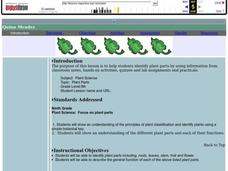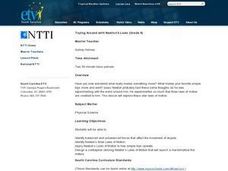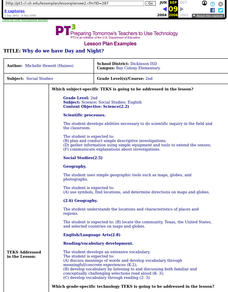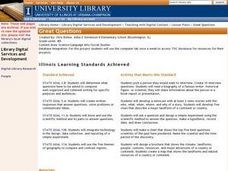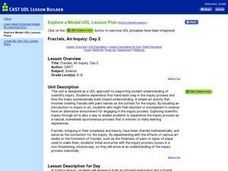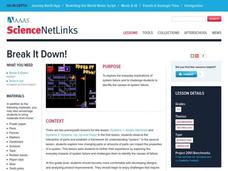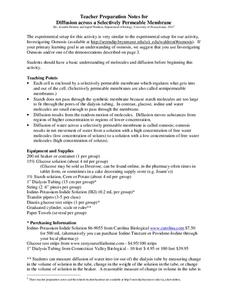Curated OER
Plant Parts
Ninth graders identify plant parts by using different classification methods. For this plant lesson students observe and draw different types of leaves then classify them according to species.
Curated OER
Nutrition in Space
Students compare and contrast the process of dehydration with the processes of freezing and canning. They predict energy sources that may be accessible in the future in different environments such as the moon and planets, most notably Mars.
Curated OER
Ten Important Hardwoods
Students discuss ten important Pennsylvania hardwood trees, examine characteristics of each tree species, evaluate economic and ecological importance of hardwood trees, and recognize at least two characteristics of each species.
Curated OER
Toying Around with Newton's Laws
Eighth graders identify balanced and unbalanced forces that affect the movement of objects and Newton's three Laws of Motion. Students also design a contraption utilizing Newton's Laws of Motion that will launch a marshmallow five meters.
Curated OER
Hatching Chickens
Students learn the importance of caring for eggs as they hatch chickens. In this egg hatching lesson, students observe what happens when eggs are hatched into chickens by completing a e-worksheet and watching a web based movie.
Curated OER
Why Do We Have Day And Night?
Second graders demonstrate knowledge and appropriate use of hardware components, software programs, and their connections. After a lecture/demo, student groups utilize raisins and apples to demonstrate day and night. They put togethre a...
Curated OER
Great Questions
Fourth graders research and create questions about a famous person. They create questions in a game format, create a computer generated brochure, and develop rubrics for their finished projects.
Curated OER
Using Mathematic Models to Investigate Planitary Habitablity
Students examine how the sun's intensity affects the temperature on various planets. They determine whether or not these planets could be habitable. Finally, they factor in the average albedo of the planets to determine whether or not...
Curated OER
Fractals, An Inquiry
Middle schoolers observe and discuss several different fractal drawings and relate them to patterns they see in nature. They use an online fractal tool to create and modify a fractal image and then create their own fractal image with...
Curated OER
Mercury, Venus, and Earth
Students learn information about the planets Mercury, Venus, and Earth by playing a trivia game.
Curated OER
Break It Down!
Students explore the everyday implications of system failure. They are challenged to identify the causes of system failure.
Curated OER
More Lizard Snacks
Students listen to Chapter I, Chapter II, Chapter III, and Chapter IV of "The Forgetful Pony". They observe different stages of development of mealworms. The student sequences pictures to show the life cycle and draws the developmental...
Curated OER
Water and Ice
Students observe, measure, and communicate while observing water convert from a solid to a liquid and back again. In this solid and liquid lesson plan, students answer questions as they observe this change.
Curated OER
Diffusion Across a Selectively Permeable Membrane
Students investigate how water passes through cell membranes. In this biology lesson, students differentiate osmosis and diffusion. They illustrate the movement of water in both processes.
Curated OER
How Do Clouds Form?
Learners describe how they believe clouds form. They observe the different types of clouds they see and identify the types. They examine what affects the size and shape of clouds.
Curated OER
The Blizzard of 1993
Students read and interpret the information from a barograph from a major winter storm. This task assesses students' abilities to interpret and analyze graphs, construct data tables and graphs, generalize, infer, apply knowledge of...


